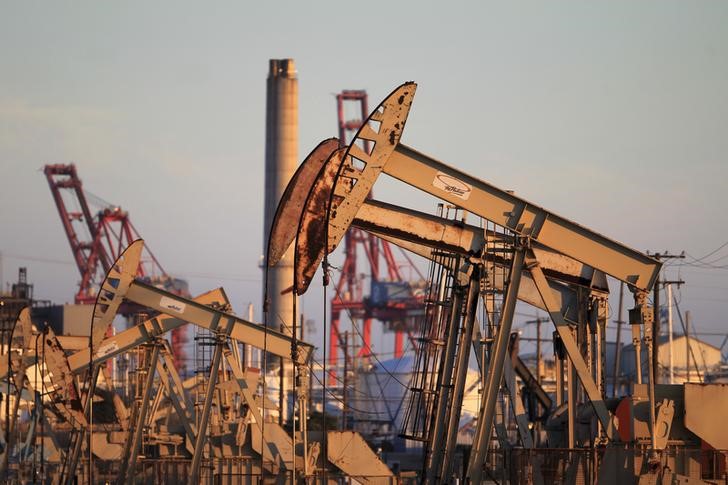Investing.com - Oil prices gained on Monday in Asia following reports that Saudi Arabia oil minister Khalid al-Falih said there will be no OPEC+ output policy change until June.
Al-Falih told Reuters on Sunday it would be too early to change OPEC+ output policy at the group's meeting in April.
"We will see what happens by April, if there is any unforeseen disruption somewhere else, but barring this I think we will just be kicking the can forward," he said, adding that output for Saudi Arabia in April was expected to remain at this month's level of 9.8 million barrels per day (bpd.)
"Aramco is finalizing their April allocations today or tomorrow so we will know more on Monday. But my expectation is that April is going to be pretty much like March."
The Organization of the Petroleum Exporting Countries (OPEC), which together with some non-affiliated producers like Russia, known as 'OPEC+', agreed late last year to reduce output by 1.2 million bpd to prop up prices.
U.S. Crude Oil WTI Futures gained 0.4% to $56.3 a barrel by 1:26 AM ET (05:26 GMT).
Meanwhile, International Brent Oil Futures were up 0.3%, at $65.94 a barrel.
Oil futures settled lower on Friday, as weaker-than-expected Chinese trade and U.S. jobs data raised worries about global energy demand.
The U.S. and China are the world’s two largest oil-consuming nations.
After ending 2018 in freefall, oil prices have rallied more than 20% to start the year thanks to ongoing efforts by major producers to drain oversupply from the market.
Looking ahead, market players will likely focus on monthly reports from the OPEC and the International Energy Agency (IEA) this week to assess global oil supply and demand levels.
Elsewhere, the American Petroleum Institute (API) is set to publish its weekly update on U.S. oil supplies on Tuesday, while the U.S. Energy Information Administration (EIA) will release its weekly report on oil stockpiles on Wednesday.
